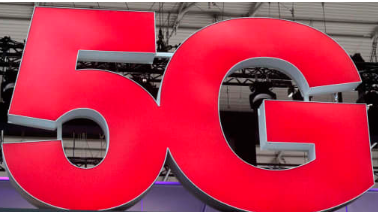- Ameya360 Component Supply Platform >
- Trade news >
- Report Quantifies Financial Benefits of 5G
Report Quantifies Financial Benefits of 5G
The momentum for 5G is rolling on in the UK, with the release of a report this week from mobile network operator O2 estimating that 5G will generate ?6 billion (about $8.35 billion) in productivity savings for the UK economy.
"The value of 5G for cities and communities" report outlines how 5G will update the operating systems of cities, making them smarter and creating tangible benefits for citizens and local councils. The report attempts to quantify the financial benefits in healthcare, transport, energy, retail and commerce.
In transportation for example, the O2 report suggests that 5G sensors on railway lines will drive improvements in predictive maintenance, reclaiming an estimated $613 million in lost productivity for the UK economy and regaining the average rail commuter 2.6 hours a year. Meanwhile, 5G-enabled road management systems, able to respond seamlessly to traffic volumes, will reduce the time spent stuck in traffic by 10% for the UK’s 5.6 million vehicle commuters, according to the report.
Commuters will also be better connected to street-level data via mobile journey planning apps linked to connected street furniture such as lamp posts and bus stops, helping them better plan journeys and avoid congested routes, according to the report.
Bristol Opens up 5G to Public
Meanwhile, the UK city of Bristol — often considered a trailblazing city when it comes to implementing smart city technology — is also planning to open 5G to the public for them to experience the potential opportunities arising from using the network technology. The University of Bristol's Smart Internet Lab, in conjunction with Watershed, a film culture and digital media centre, and We The Curious, the Bristol-based science center, will host the Layered Realities Weekend 5G Showcase. The event will launch a public 5G testbed to explore the next generation of wireless and wired connectivity through a series of free experimental public events.
As previously reported, the UK government is already planning to invest about $35 million into six projects to test 5G across a range of applications. On top of this, there are of course many other testbeds being developed across the country. For example, last December, Vodafone UK and Ericsson, in partnership with academics at King’s College London, successfully tested standalone pre-standard 5G using a prototype device in a central London 3.5 GHz spectrum field trial.
O2, which is part of Telefonica, is also planning to launch a 5G test bed at The O2 venue in London later this year, delivered using multi-access edge computing and configured for virtualization of core 5G network technologies. Installation of the network will begin this month, with visitors able to use the technology from the second half of 2018.
O2 will initially allow customers to experience the technology via a variety of customer demonstrations, which will include virtual reality, augmented reality and live streaming.
Dimitra Simeonidou, a professor and the director of the Smart Internet Lab at the University of Bristol, said the Bristol test bed is "the world’s first public 5G experience."
Audiences will be invited to explore for themselves the advantages of massive MIMO, which is expected to greatly boost network capacity and performance whilst reducing network congestion. Event attendees will also have the opportunity to view a real time transmission sent from a connected autonomous vehicle (CAV) for the duration of the weekend.
Wireless connectivity is one of the underpinning technologies allowing the CAVs to transform from autonomous systems to cooperative entities via collaborative sensor sharing.
Bristol recently won the Smart City Award at the Global Mobile Awards at Mobile World Congress in Barcelona. It has always been a key UK cluster for the electronics industry in the modern age, starting from the establishment of Inmos back in 1978, which developed the transputer and eventually became part of STMicroelectronics before it closed down in the city. But this then yielded a strong cluster of expertise in areas like set-top boxes, audio and video compression technologies.
Bristol incubated companies like Pixelfusion and picoChip in the 1990s. Today, chip companies including Blu Wireless Technology, Graphcore, Ultrahaptics, UltraSoc and Xmos call Bristol home.
Online messageinquiry

5G Needs New Approach to Security

Partnership to Develop 5G Base Station Chip

5G: Huawei India CEO says open to provide source code for screening to allay security concerns

US has a 'concerted strategy' to push allies to reject Huawei's 5G equipment: Eurasia Group
- Week of hot material
- Material in short supply seckilling
| model | brand | Quote |
|---|---|---|
| RB751G-40T2R | ROHM Semiconductor | |
| TL431ACLPR | Texas Instruments | |
| MC33074DR2G | onsemi | |
| BD71847AMWV-E2 | ROHM Semiconductor | |
| CDZVT2R20B | ROHM Semiconductor |
| model | brand | To snap up |
|---|---|---|
| ESR03EZPJ151 | ROHM Semiconductor | |
| TPS63050YFFR | Texas Instruments | |
| BP3621 | ROHM Semiconductor | |
| BU33JA2MNVX-CTL | ROHM Semiconductor | |
| STM32F429IGT6 | STMicroelectronics | |
| IPZ40N04S5L4R8ATMA1 | Infineon Technologies |
- Week of ranking
- Month ranking
Qr code of ameya360 official account
Identify TWO-DIMENSIONAL code, you can pay attention to


Please enter the verification code in the image below:






















